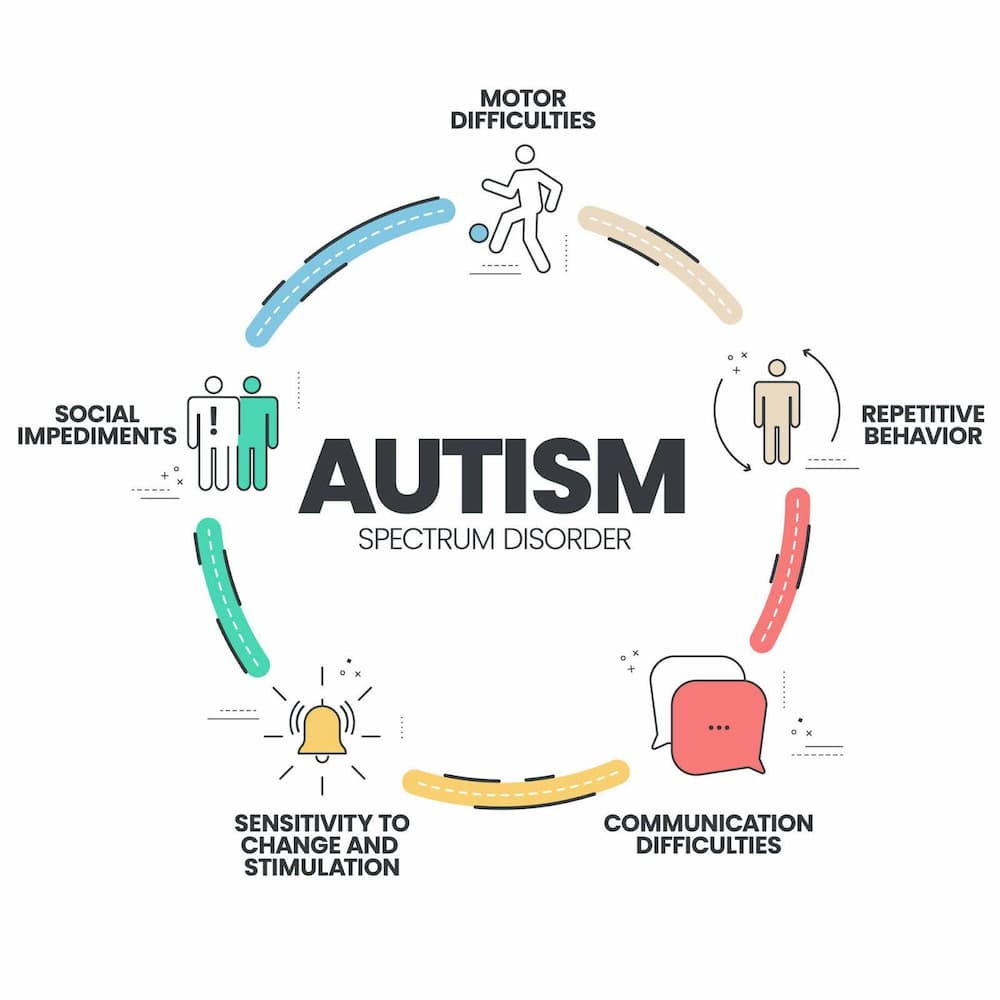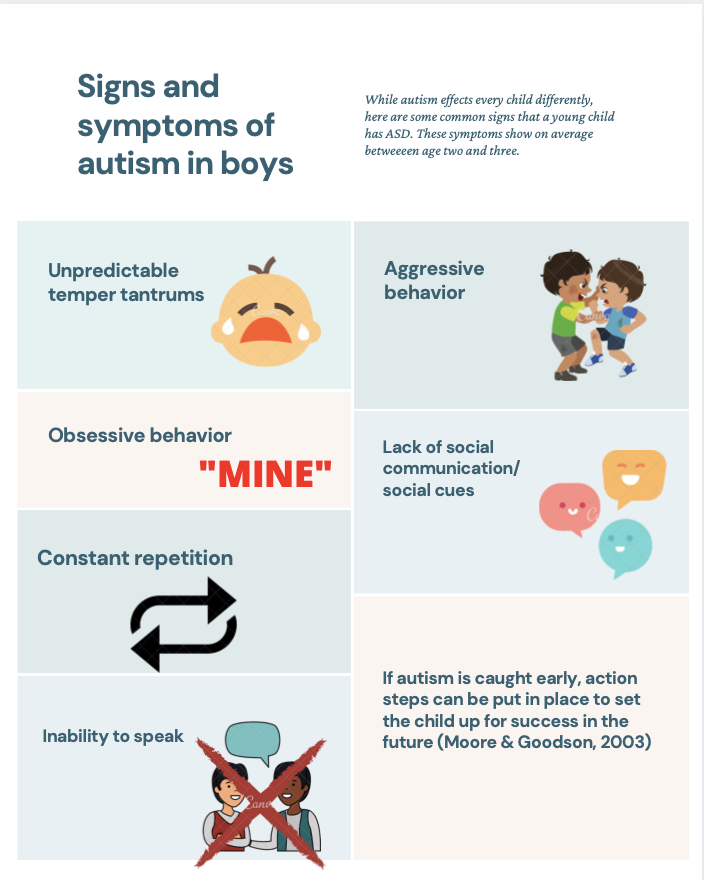Understanding behavioral triggers through Autism Therapist-backed methods
Recognizing the Influence of Behavioral Autism on Day-to-day Live and Social Communications
You may not recognize exactly how deeply behavioral autism affects day-to-day life and social communications. People on the range commonly browse a world filled up with communication obstacles and sensory overload. These obstacles can lead to stress and seclusion, influencing their partnerships and general wellness.
Defining Behavior Autism and Its Attributes
Behavioral autism, frequently described as autism spectrum disorder (ASD), includes a series of conditions characterized by difficulties in social interaction, communication, and repeated behaviors. You could see that people with ASD commonly have a hard time to interpret social signs, which can cause misunderstandings in discussions. They might find it tough to develop eye get in touch with or take part in small talk, making social scenarios feel overwhelming.
Interaction problems can materialize in various methods, from postponed speech development to a preference for utilizing fewer words. By acknowledging these characteristics, you can cultivate an atmosphere that advertises acceptance and motivates reliable interaction, helping people with autism grow in their daily interactions.
The Range of Autism: Understanding Irregularity in Actions
Autism range problem (ASD) isn't a one-size-fits-all diagnosis; it differs extensively among people. You might encounter people who are highly spoken and engage conveniently in discussions, while others may favor singular activities or communicate non-verbally.
Furthermore, the way people with ASD react to sensory input can differ significantly; some may be bewildered by bright lights or loud noises, whereas others thrive in stimulating settings. The range likewise includes distinctions in social communications; some individuals may battle to interpret social cues, while others navigate social setups with relative simplicity. Comprehending this variability is vital, as it aids you appreciate everyone's one-of-a-kind experience and tailor assistance to their particular demands, cultivating a much more inclusive setting for everybody.
Communication Obstacles Encountered by Individuals With Autism
When you interact with individuals on the autism spectrum, you might observe their distinct interaction difficulties. They commonly deal with troubles with both verbal and nonverbal signs, which can affect their social interactions. Recognizing these barriers is essential for fostering far better connections and support.

Verbal Communication Difficulties
Many individuals on the autism spectrum experience verbal communication difficulties that can substantially affect their everyday communications. Your tone, pace, or volume could not line up with social assumptions, creating others to misinterpret your intentions. Recognizing these difficulties can aid you and your assistance network create strategies to improve interaction and cultivate better links with others in your day-to-day life.
Nonverbal Interaction Obstacles
Verbal interaction isn't the only obstacle people on the autism spectrum face; nonverbal communication barriers can be simply as substantial. You might find it difficult to analyze body language, faces, and eye call, which are essential for efficient interaction. These difficulties can lead to misunderstandings or false impressions of social cues, making interactions really feel overwhelming or confusing. You may struggle to express your very own emotions with nonverbal methods, leaving others uncertain of your purposes or feelings. This separate can develop feelings of seclusion and stress. Identifying these obstacles is vital for promoting understanding and empathy in your interactions. By addressing nonverbal interaction, you can find methods to boost your social experiences and enhance your overall lifestyle.
Social Interaction Impacts
Social communications can frequently feel frustrating due to the unique interaction difficulties faced by people with autism. Acknowledging these obstacles can assist you locate approaches to enhance communication, such as practicing social abilities in risk-free setups or using visual aids. Comprehending your requirements enables you to browse social interactions with better confidence and ease.
Social Communication and Relationship Building in Autism
While building connections can be challenging for people with autism, understanding their unique point of views and interaction designs can cultivate meaningful links. You might observe that many individuals on the range prefer straight interaction and might battle with social signs or little talk. By being uncomplicated in your communications, you can aid create an atmosphere where they feel comfy.
Put in the time to pay attention and observe exactly how they reveal themselves. This insight can lead you in guiding discussions better. Taking part in shared rate of interests can also act as a bridge to deeper connections. Whether it's a leisure activity, a favored show, or a mutual interest, these usual threads click here can open up doors to relationship.
Every Day Life Regimen: Navigating Strategies and obstacles
Maneuvering daily life regimens can be especially testing for people with autism, especially when unanticipated modifications take place. You might discover convenience in having a structured routine, as it helps you anticipate what's following. When disturbances take place, it's normal to really feel nervous or overloaded. To browse these difficulties, take into consideration applying aesthetic schedules or checklists. These devices can offer clarity and reassurance.
Developing a routine get more info that includes sensory breaks can likewise be useful. You can intend short breaks throughout your day to recharge. It's essential to communicate with those around you, letting them recognize your requirements and choices. This helps develop an understanding setting.
Finally, method mindfulness strategies to take care of tension and anxiousness. Simple breathing workouts or basing strategies can make a substantial distinction. By incorporating these strategies, you can improve your everyday routine and decrease interruptions, making life really feel extra convenient.
Strengths and Capabilities of People on the Autism Spectrum
Recognizing day-to-day life routines is just one aspect of the autism experience. Numerous individuals on the autism range have amazing toughness and abilities that establish them apart.
In addition, your memory abilities usually beam, particularly in areas of passion. Autism Therapist. This flair for maintaining details can make you a valuable resource in areas like technology, art, or science. You may additionally display solid aesthetic reasoning, enabling you to visualize complicated ideas and solve issues artistically
In addition, your special point of view on the world can foster empathy and understanding in others, enhancing social interactions. Embracing these toughness not just enhances your self-confidence yet additionally helps others appreciate the diverse skills you offer the table.
Producing Comprehensive Atmospheres for Individuals With Autism
Producing inclusive environments for individuals with autism begins with creating sensory-friendly areas that provide to website their unique needs. You can additionally foster possibilities for social interaction, assisting to construct connections and friendships. By making these modifications, you'll add to a much more inviting ambience for everybody.
Designing Sensory-Friendly Spaces
While designing sensory-friendly rooms, it's essential to show on the one-of-a-kind demands of individuals with autism. Include quiet areas where individuals can pull back and recharge when bewildered. Consist of aesthetic routines or clear signage to assist individuals navigate the room with confidence.
Advertising Social Interaction Opportunities
Designing sensory-friendly areas not just addresses private comfort but additionally establishes the stage for purposeful social interactions amongst individuals with autism. Encourage peer mentoring, matching people with autism with encouraging peers that can lead them with social situations. By carrying out these techniques, you can improve social chances, assisting people with autism build relationships and reinforce their social skills in a secure, inviting environment.

Regularly Asked Concerns
Exactly How Can Pals Support Somebody With Behavioral Autism?
You can support a pal with behavior autism by holding your horses, listening actively, and respecting their borders. Involve in activities they take pleasure in, communicate freely, and develop a comfortable atmosphere where they really feel valued and recognized.
What Resources Are Offered for Parents of Kid With Autism?
You can explore numerous sources for parents of kids with autism, including support groups, academic internet sites, and regional area solutions. Getting in touch with other parents can likewise provide important understandings and shared experiences to aid browse difficulties.
Can Behavioral Autism Change Gradually?

Yes, behavior autism can alter in time. You might discover changes in interaction, social skills, and behavior as your child grows. Early treatment and support typically play essential roles in these developing modifications.
Just How Do Sensory Level Of Sensitivities Influence Every Day Life?
Sensory sensitivities can make day-to-day experiences frustrating. You might have problem with bright lights or loud sounds, resulting in tension or avoidance. Locating settings that suit your needs can considerably improve your comfort and general life.
What Are Usual Misconceptions Regarding Behavioral Autism?
You could think behavioral autism only impacts communication skills, but it's more complicated. Numerous presume people lack empathy or knowledge, which isn't true. Understanding these misunderstandings aids foster approval and assistance for those on the range.
Behavior autism, commonly referred to as autism spectrum disorder (ASD), incorporates a range of conditions identified by difficulties in social interaction, interaction, and repetitive habits.Social interactions can typically feel frustrating due to the special communication challenges encountered by individuals with autism.Creating sensory-friendly rooms not only addresses individual convenience but likewise establishes the stage for purposeful social interactions amongst individuals with autism. Motivate peer mentoring, combining individuals with autism with helpful peers that can lead them through social situations. By applying these approaches, you can enhance social possibilities, helping individuals with autism construct friendships and reinforce their social skills in a risk-free, welcoming atmosphere.